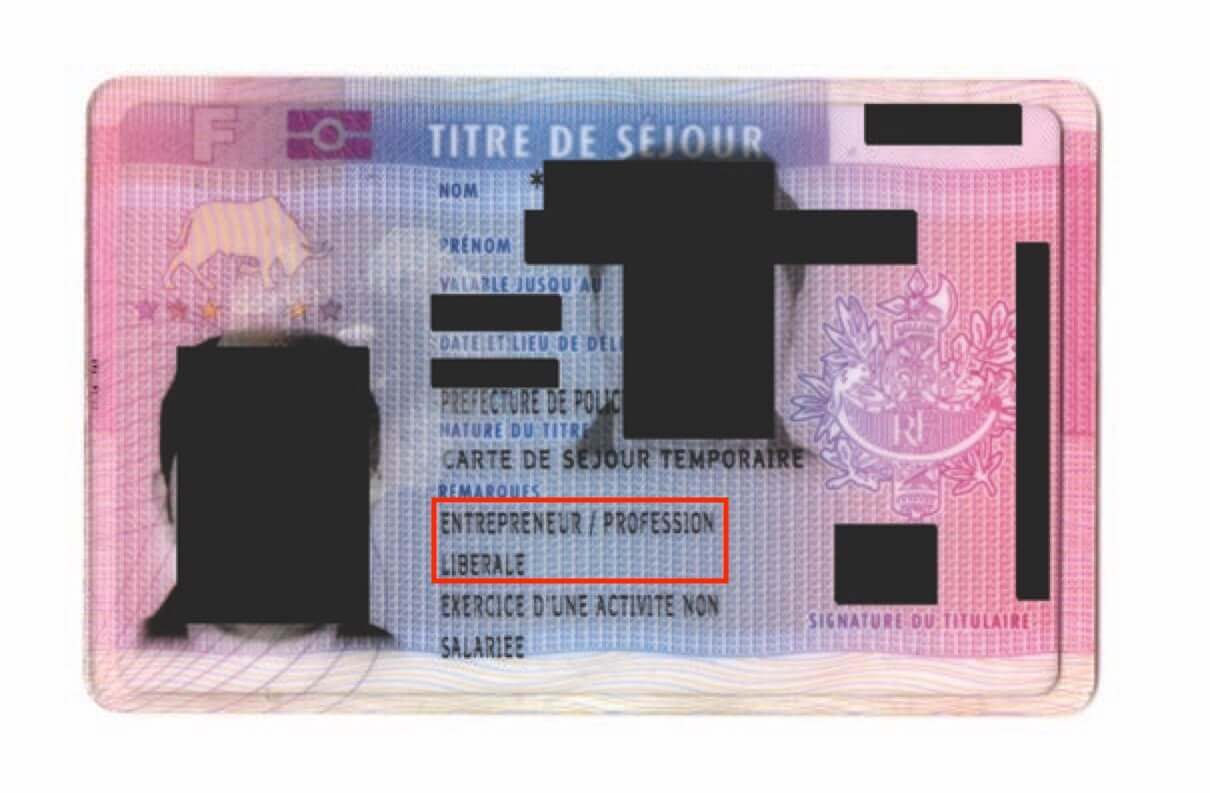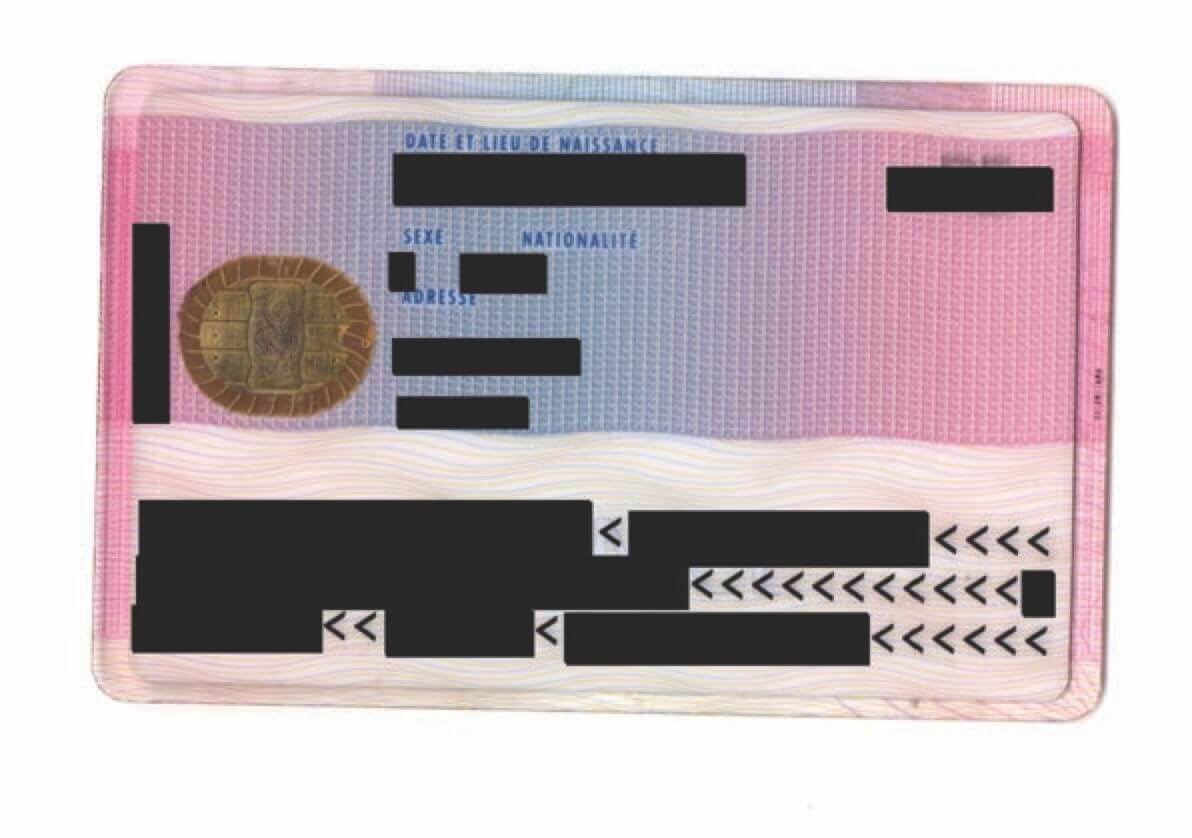
The requirements for the French entrepreneur visa (also known as the profession liberale visa) are that you are able to:
- set up an economically viable business (Article L313-10, Code for the Entry and Stay of Foreigners and the Right to Asylum (“The Code”));
- pay yourself the equivalent of the minimum legal wage in France for a full-time worker. This equates to around £1,539.42 per month or £18,473.04 per year (see the French Office for National Statistics (Insee) for the latest statistics;
- provide documents proving your ability to carry out your planned business activity (i.e. degrees/diplomas, professional qualifications, employment certificates, etc.).
- provide a criminal record certificate from your home country;
- provide a completed “retailer, crafts person, manufacturer” form;
- provide a written presentation of your project, your business plan and a multi-annual estimated budget.
- provide a letter of guarantee from a French-based credit institution or approved insurance company or proof of a credit balance from an account opened in your name at a French-based credit institution;
- provide a copy of the commercial lease agreement stating the business activity or of the sub-lease contract stating the activity and where possible authorisation from the owner of the premises, or any other documents regarding the business premises and copy of the draft articles of association with a draft breakdown of share capital;
- provide a signed and dated application form;
- provide a valid travel document issued less than 10 years ago, containing at least two blank pages and at least three months longer than the expiry date of the visa requested (i.e. at least 1 year left to run);
- provide a France-Visas receipt;
- provide a passport-sized ID photograph; and
- if you are not a national of your country of residence, provide proof that you are legally resident in that country (e.g. residence permit).
Application Process
STEP 1 – Complete the long-stay visa application form marked “Entrepreneur/independent professional” and submit with the documents above to the French consulate in the country where you reside. The processing time for a long-stay visa varies depending on the specifics of a particular application.Typically this process takes 15-20 days.
STEP 2 – Receive your entry visa.
STEP 3 – Arrive in France. You must validate your visa online via the OFII dedicated online platform within 3 months of arrival. In order to do this you will need:
• a valid email address;
• your visa information;
• your date of arrival in France;
• your address in France; and
• your card details for the online payment of the fee for issuing your residence permit.
STEP 4 – Receive your temporary residence permit.


Pathway to Permanent Residence
STAGE 1 – 2 months before the expiry of your temporary residence permit you must submit a renewal application. In order to meet the requirements, you must produce documents showing that you continue to meet the conditions for eligibility for which the temporary permit was granted (see above). If the conditions are met, you will be granted a 4-year visa extension.
STAGE 2 – After 5 years of uninterrupted residence, you can obtain a long-term residence card marked “Long-Term Residence CE”, this is equivalent to Permanent Residence (PR). You must have obtained comprehensive health insurance cover and continue to be compliant with the conditions for initial eligibility and sufficient financial and housing resources (above) (Article L314-8, The Code). You must also meet the requirements for knowledge of French language (Level A2) (Article L314-2, The Code). This residence card is renewable indefinitely and are issued for 10 years.
STAGE 3 – After 5 years of continuous and uninterrupted residence and you have received the residence card above, you may apply for French citizenship (Article 21-17 French Civil Code). As at Stage 2, you must have comprehensive health insurance cover and continue to show that you are able to meet the requirement for financial and housing resources. You must also speak French to level B1 and show your assimilation into French culture (you will be required to display this at an “assimilation interview” where the interview itself is conducted in French) (Article 21-24 French Civil Code). The processing time for French citizenship can be up to 18 months.
N.B. Your dependents can also apply for PR after 3 years of uninterrupted residence (Article L314-9, The Code). They may then apply for French citizenship after 5 years as above at Stage 3.
This visa route permits overseas individuals to obtain a temporary residence card that allows the applicant to stay in France, for an initial period of 1 year, to exercise a professional activity (i.e. setting up a business or working for a company as an employee). This article will focus on overseas individuals who wish to establish a business. There are no requirements for the business in question to be of a particular type, only that it is economically viable. This visa route leads to Permanent Residence in France and French citizenship, if desired.
Bringing family
You are able to bring your spouse and any children under 18 years of age into France under the “family reunification” route. However, you must have been living in France for a period of at least 18 months (Article L411-1, The Code), so you will not be able to bring your dependents to France during the initial visa term.
You must also have sufficient financial resources and housing to support your family members.
Visa Fees for the French entrepreneur visa / profession liberale visa
Main Applicant
• The fee for the initial entry visa is €99. You must also pay a fee of €200 to French Office of Immigration and Integration (OFII) for issuing your temporary residence permit. In addition, you must also pay stamp duty of €25 on top of the fee for issuing your temporary residence permit.
• There is an additional administrative fee of €225 for the extension application and a further €225 for the application for the PR card.
• The application for French citizenship costs €55.
Dependents
• The fee for the initial entry visa for both spouse or child (under the age of 19) is €99. The fee payable to OFII for issuing the residence permit is €269 (incl. stamp duty) for a spouse and €139 for a child (incl. stamp duty);
• the additional administrative fee for the renewal for both a spouse and for a child is €269 (incl. stamp duty);
• the fee for the PR card is €180; and
• the application for French citizenship is €55.
You should also make sure that you continue to be above the French National Minimum Wage, which is a requirement for this visa pathway.
The required supporting document checklist is provided by the French government here.
The legal requirements for the French entrepreneur visa or ‘profession liberale’ visa are set out in Article L313-10 of The Code
This states:
“The temporary residence permit authorising the exercise of a professional activity is issued:
1. Abroad, holder of an employment contract referred to in accordance with the provisions of article L. 341-2 of the labor code.
For the exercise of a salaried professional activity in a trade and a geographical area characterised by difficulties of recruitment and appearing on a list established at the national level by the administrative authority, after consultation of the representative trade unions of employers and employees, the foreigner is issued this card without opposing the employment situation on the basis of the same article L. 341-2.
The card is marked “employee” when the activity is carried out for a period greater than or equal to twelve months. It is marked “temporary worker” when the activity is carried out for a fixed period of less than twelve months. If the termination of the employment contract by the employer occurs within three months preceding the renewal of the card marked “employee”, a new card is issued to him for a period of one year;
2. Abroad who comes to exercise a commercial, industrial or craft profession, on the condition in particular that he justifies an economically viable activity compatible with public safety, health and tranquility and that he respects the obligations imposed to nationals for the exercise of the profession envisaged. It bears the mention of the profession that the holder intends to practice. A decree in the Council of State fixes the conditions of application of this 2;
3. Abroad who comes to exercise a professional activity not subject to the authorisation provided for in Article L. 341-2 of the Labor Code and who justifies being able to live on their own resources.
…”
The French legal requirements for your family joining you on the the French entrepreneur visa or ‘profession liberale’ visa are set out in Article L411-1 of The Code:
“Foreign nationals who have been staying regularly in France for at least eighteen months, under cover of one of the documents with a validity period of at least one year provided for by this code or by international conventions, may request to benefit of his right to be joined, by virtue of family reunification, by his spouse, if the latter is at least eighteen years of age, and the children of the minor couple under eighteen years of age.”
The financial and accommodation requirements you need to satisfy are explained in Article L411-5 of The Code:
“Family reunification can only be refused for one of the following reasons:
1. The applicant does not justify stable and sufficient resources to support his family. All the resources of the applicant and his spouse are taken into account independently of the family benefits and allowances provided for in article L. 262-1 of the social action and family code, in article L. 815-1 of the social security code and articles L. 351-9, L. 351-10 and L. 351-10-1 of the labor code. Resources must reach an amount that takes into account the size of the applicant’s family. The Council of State decree provided for in Article L. 441-1fixes this amount which must be at least equal to the minimum monthly growth salary and at most equal to this salary increased by a fifth. These provisions do not apply when the person requesting family reunification is the holder of the allowance for disabled adults mentioned in article L. 821-1 of the social security code or the additional allowance mentioned in article L. 815-24 of the same code;
2. The applicant does not have or will not have on the date of arrival of his family in France accommodation considered normal for a comparable family living in the same geographic region;
3. The applicant does not comply with the essential principles which, in accordance with the laws of the Republic, govern family life in France, the host country.”
The residency requirements for this visa pathway are set out in Article L314-8 of The Code:
“Any foreigner who has an uninterrupted residence of at least five years in France, in accordance with the laws and regulations in force, under cover of one of the residence permits mentioned in articles L. 313-6 , L. 313-8 and L. 313-9, in 1, 2 and 3 of article L. 313-10 , in articles L. 313-11, L. 313-11-1 , L. 313-14 and L. 314-9, in 2, 3, 4, 5, 6, 7 and 9 of article L. 314-11 and in articles L. 314-12 and L. 315-1 can obtain a resident card marked “long-term resident-CE” if they have health insurance. Years of residence, under cover of a temporary residence permit marked “private and family life” withdrawn by the administrative authority on the basis of a marriage having only the purpose of obtaining a residence permit or d ‘acquire French nationality, cannot be taken into account to obtain the resident card. The decision to grant or refuse this card is taken taking into account the facts which he can invoke in support of his intention to establish permanently in France, in particular with regard to the conditions of his professional activity if he has one, and his means of existence.
The applicant’s livelihoods are assessed in the light of their resources, which must be stable and sufficient to meet their needs. All the applicant’s own resources are taken into account independently of the family benefits and allowances provided for in articles L. 262-1 of the social action and families code and L. 351-9, L. 351-10 and L. 351-10-1 of the labor code. These resources must reach an amount at least equal to the minimum growth wage and are assessed with regard to housing conditions.
The sufficiency of resources with regard to housing conditions is the subject of an opinion from the mayor of the applicant’s municipality of residence. This opinion is deemed favorable to the expiration of a period of two months from the referral of the mayor by the administrative authority.”
The French language requirements for the entrepreneur route are set out in Article L314-2 of The Code:
“When the legislative provisions of this code so provide, the issuance of a first resident card is subject to the republican integration of the foreigner into French society, appreciated in particular with regard to his personal commitment to respect the principles that govern the French Republic, effective compliance with these principles and its knowledge of the French language, which must be at least equal to a level defined by decree in the Council of State.
For the assessment of the condition of integration, the administrative authority seeks the opinion of the mayor of the municipality in which he resides. This opinion is deemed favorable to the expiration of a period of two months from the referral of the mayor by the administrative authority.
Foreigners over the age of sixty-five are not subject to the condition relating to knowledge of the French language.”
The requirements for naturalisation as a French citizen after completing your entrepreneur / profession liberale visa term are set out in Article 21-17 of French Civil Code:
“Subject to the exceptions laid down in Articles 21-18, 21-19 and 21-20, naturalisation may be granted only to an alien who proves a habitual residence in France during the five years preceding the submission of the request.”
The other citizenship requirements are set out in Article 21-24 of the French Civil Code:
“Nobody may be naturalised unless he proves his assimilation into the French community, and notably by a sufficient knowledge, according to his condition, of the language, history, culture, and society of France, whose level and whose means of evaluation are fixed by decree en Conseil d’État, and of the rights and duties conferred by the French nationality, as well as an adherence to the essential principles and values of the Republic.
Upon issuance of the verification of his assimilation, the person concerned signs the charter of the rights and duties of the French citizen. This charter, approved by decree en Conseil d’État, restates the essential principles, values, and symbols of the Republic of France.”
The requirements for the issuance of residence cards to your family are set out in Article 314-9 of The Code:
“The resident card is automatically issued:
1. To the spouse and children in the year following their eighteenth birthday or falling within the provisions of article L. 311-3, of a foreigner holding a resident card, who have been authorized to stay in France for family reunification under the conditions provided for in Book IV and which justify an uninterrupted residence, in accordance with the laws and regulations in force, of at least three years in France;
2. Abroad who is the father or mother of a French child residing in France and who has held the temporary residence card mentioned in 6 of article L. 313-11 or a card for at least three years of multi-year residence mentioned in 2 of Article L. 313-18 , provided that he still fulfills the conditions for obtaining this residence permit and that he does not live in a state of polygamy.
The child referred to in this article means the child having a legally established filiation, including the adopted child, by virtue of an adoption decision, subject to the verification by the public prosecutor of the regularity of this decision when it was made abroad;
3. Abroad married for at least three years with a national of French nationality, provided that he stays regularly in France, that the community of life between the spouses has not ceased since the marriage, that the spouse has retained French nationality and, when the marriage was celebrated abroad, that it was transcribed beforehand in the French civil status registers.
For the application of 2 and 3 of this article to Mayotte, the condition provided for in the first sentence of 2 of article L. 314-8 applies.”
Visa fees for the French entrepreneur visa or ‘profession liberale’ visa are set out on the French government’s sites here:
https://france-visas.gouv.fr/en_US/web/france-visas
https://france-visas.gouv.fr/en_US/web/france-visas/self-employed-person-or-liberal-activity
